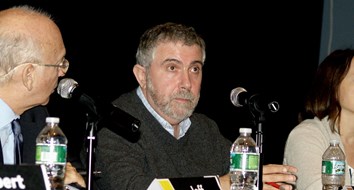Chick-fil-A, the popular food chain headquartered in Georgia, was banned from airports in New York and Texas over the past week.
The company has given money to Christian organizations opposed to same-sex marriage, which resulted in the organization coming under fire from some LGTBQ groups, political organizations, and civil rights supporters.
Defending the First Amendment
On Wednesday, Alex Griswold, a reporter at the Washington Free Beacon, shared a message he received from the New York Civil Liberties Union, responding to the decision by Niagara Frontier Transportation Authority (NFTA) to ban Chick-fil-A from the Buffalo Niagara International Airport.
“Government actors cannot officially silence speech or take punitive actions based on a person’s or private entity’s political viewpoints,” Erika Lorshbough, Assistant Director for Legislative Affairs, told Griswold. “The First Amendment does not permit the NFTA to base its contracting decisions on the political views of a vendor.”
Statement from NYCLU on Chick-Fil-A being blocked from the Buffalo airport because of its donation history: pic.twitter.com/MYvu8DYbJm
— Alex Griswold (@HashtagGriswold) April 3, 2019
The message is important because it demonstrates that some civil rights groups continue to support their principles even in sticky situations. (The larger ACLU, which has been drifting from its once staunch support for civil liberties, has issued no public statement on the Chick-fil-A ban.)
One need not support Chick-fil-A’s ideas on marriage to see the danger in government corporations punishing individuals or private entities for their political positions.
Pete Buttigieg—a Democratic presidential contender and the first openly gay candidate from a major party—recently suggested that banning Chick-fil-A from airports is inconsistent with progressive principles.
If you’re turned off, as I am, by the political behavior of Chick-fil-A or their executives — if that leaves a bad taste in your mouth, so to speak, and you decide not to shop there, I’d certainly get it and I’d support that. But the reality is, we, I think, sometimes slip into a sort of virtue signaling in some cases where we’re not really being consistent.
Civil Liberties Extend to Heretics, Too
As America becomes a more diverse place—sexually, religiously, ethnically, and racially—the ideas of classical liberalism become more important, not less. One of the key tenets of classical liberalism is the toleration of others, including those who hold ideas that may be heretical or dangerous.
This idea was beautifully described by Milton Friedman in Capitalism and Freedom:
One may believe, as I do, that communism would destroy all of our freedoms, one may be opposed to it as firmly and as strongly as possible, and yet, at the same time, also believe that in a free society it is intolerable for a man to be prevented from making voluntary arrangements with others that are mutually attractive because he believes in or is trying to promote communism. His freedom includes his freedom to promote communism.
Friedman understood that protecting freedom is not a matter of ends, but means. Civil liberties and toleration extend to heretics, too, or they do not truly exist.
Laws that prevented same-sex couples from marrying are extinct in the US.
Efforts to use government to punish those who once supported traditional marriage laws, or shame people who eat sandwiches from a restaurant that supported them, are misguided. Those who support such efforts fail to see that banning others in the name of inclusion is simply another form of oppression.





